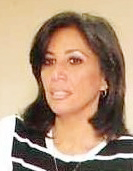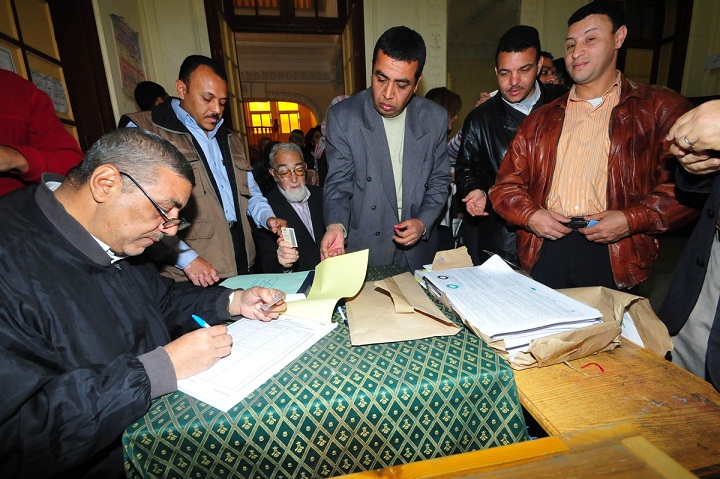
Innocence of Muslims, an obscure film produced in the United States ridiculing Islam and its revered prophet Muhammad, sparked angry protests across the Middle East and the Islamic World last week, threatening to ruin America’s relations with countries where the protests had turned violent.
In Egypt, protests continued for four days, with clashes erupting on Friday between a mob of around 300 rock throwers and security forces barricaded outside the embassy. The fact that the US had little to do with the film except for the fact that its creators live on US soil failed to register with the protesters who were determined to vent their anger at the US. President Barack Obama warned of “real problems” if US interests were harmed. His warning prompted the government in Cairo to rein in the anti-US protests and contain the crisis. The outpouring of rage however served as a reminder that eleven years after the 11 September 2001 attacks, Egyptians and Muslims worldwide continue to harbour deep-rooted grievances against US policy in the Arab and Islamic world.
After last year’s mass uprising that toppled President Hosni Mubarak, the US tried to win over Egypt’s revolutionary youth, reassuring them of US support during the country’s democratic transition. The young activists who started the 25 January uprising however rejected Washington’s fence-mending overtures and refused to meet with US secretary of state Hillary Clinton when she visited Egypt five weeks after the fall of Mubarak. They said the US had supported the authoritarian regime in Egypt for thirty years and had continued to support Mubarak until his downfall became inevitable.
I had the opportunity to interview secretary Clinton on her first visit to Egypt post-revolution and confronted her with some hard-hitting truths. “Egyptians are disappointed and feel betrayed,” I told her. “The US preaches democracy and freedom on the one hand and on the other supports autocratic regimes to further its own interests. Many here see this as double-standards.”
Unfazed, she replied that, “America stands for democracy and for the values that undergird democracy. President Obama and I spent a lot of time trying to make sure that the demonstrations in Tahrir Square were peaceful. The people had a right to demonstrate and their rights needed to be respected. The government had a duty to respect those rights.”
I noticed that Secretary Clinton avoided mentioning Mubarak by name and did not allude to US support for him. Seeing she was unruffled by what I had said, I decided to press further. “The tear gas canisters fired at protesters were made in the USA. ” I also reminded her that, “during Mubarak’s thirty year rule, much of the aid from the US has gone to creating a strong security apparatus that ensured Mubarak continued to have a tight grip on power.”
While denying that the aid had gone to assisting Mubarak’s security forces, Clinton acknowledged that much of the aid had gone to the military. “It was a good investment,” she said, adding that, “the Egyptian military performed so admirably during the uprising.”
Indeed, the Egyptian military, unlike the Syrian army, had exercised restraint and is believed to have defied orders to kill protesters in Tahrir Square during the eighteen day uprising. What happened afterwards was a different story though: military forces used excessive force to break up a number of demonstrations held in the transitional period, earning the wrath of activists. The military crackdowns on peaceful protesters also fuelled activists’ anger at the US administration which supported the army.
In the anti-US rallies last week, protesters voiced their rejection of the US$1.3 billion of military aid given to Egypt annually by the US, saying the aid comes with strings attached. “The aid is costing us our dignity and we are being forced to accept US interference in our internal affairs,” shouted Safaa Abdel Halim, a veiled seamstress from the Imbaba district. Calls on the government to reject the aid were made earlier this year by the now dissolved Islamist-dominated parliament on the grounds that Egypt should not agree to any restrictions in exchange for US military assistance. “We had a revolution to break free from dependence on the west. We can no longer accept subordination to America,” said Alaa Mahmoud, a 30 year old IT engineer who was among the protesters.
While Egyptians do not hate America or the American people, they hate US policy vis-a-vis the Islamic world in general and the Middle East in particular. Many in this region see US policy as favouring Israel. The one thing that the former ruling party, the NDP and the Muslim Brotherhood had agreed upon in Mubarak days was the fact that US policy in the Arab and Islamic World was biased in favour of Israel. Gauging the views of Egyptians on the US presidential election in 2009, I asked the NDP’s Secretary for Media Affairs Mohamed Kamal and (the then-outlawed) Muslim Brotherhood’s Mohamed Morsy, among many others, about their preferred candidate in the presidential race. They both said that it was up to the American people to choose their leader but expressed hope that whoever succeeded the outgoing President George W Bush “would adopt even-handed policies towards the Middle East.”
The unwavering US support for Israel, no matter what atrocities it commits against Palestinians, is one reason for Egyptian hostility towards the US. But it is not the only reason. While the US’ declared goal of the wars in Iraq and Afghanistan was to “liberate” their peoples and bring democracy to both countries (hence, the US expectations that their forces would be greeted with flowers), few Arabs and Muslims would describe these wars as anything short of “invasions” and “colonialism”. More than 132,000 are believed to have died in ten years of war in Iraq and Afghanistan, many of them civilians. The US troops withdrawals from these countries have not been “total” and a US State Department official reportedly told US media (at the time of the withdrawals) that the US would have to figure out how it, “can continue to wield influence in Iraq on key decisions without being seen to do so.” All this has fuelled speculation in the Arab world that the US had wanted to get its hands on the oil in Iraq and Afghanistan.
And that’s not all; chilling memories of the scenes from the Abu Ghraib continue to haunt many here who watched in horror as they were shown on TV screens. Many will also tell you that Obama failed to fulfill his campaign promise to close the controversial Guantanamo Bay, the notorious detention centre where nearly 800 US “enemy combatants” are believed to have been detained since 2002, some suffering torture. A 19 year old rock-thrower at the scene of the recent protest said his bitterness goes back to the days when he’d heard about US servicemen in Afghanistan burning the Quran. Clearly, the outpouring of rage in Islamic countries isn’t just about a low-budget film insulting the prophet Muhammad. It is the eruption of a volcano that has been simmering for the past eleven years.



